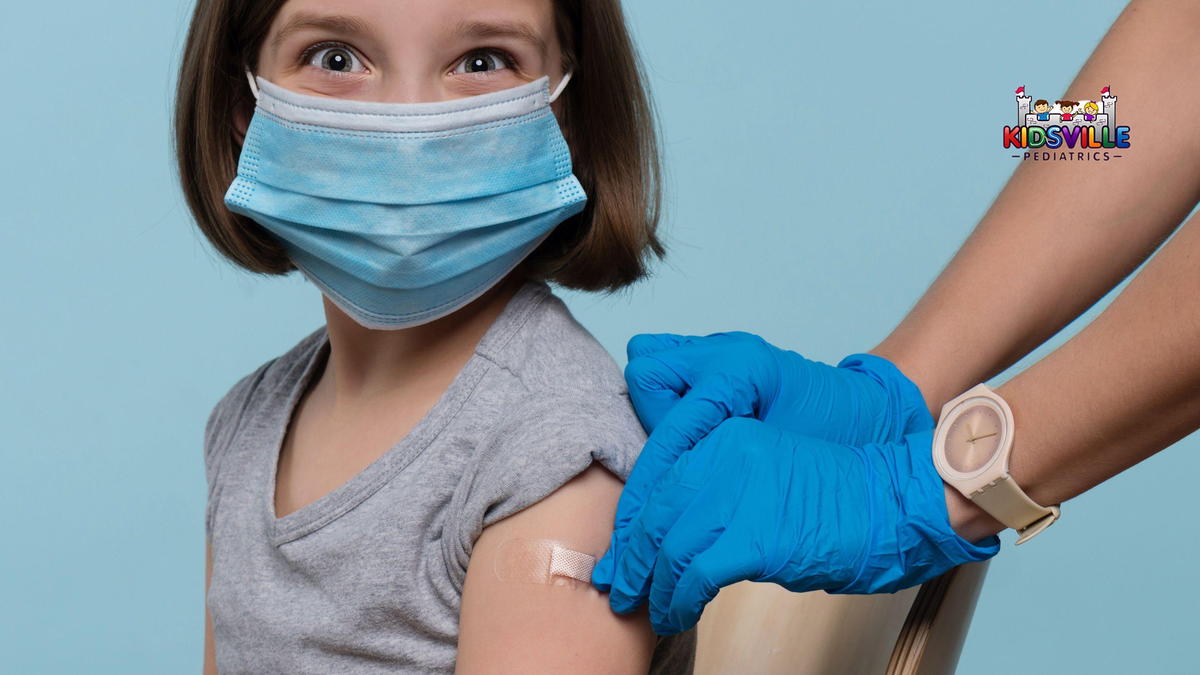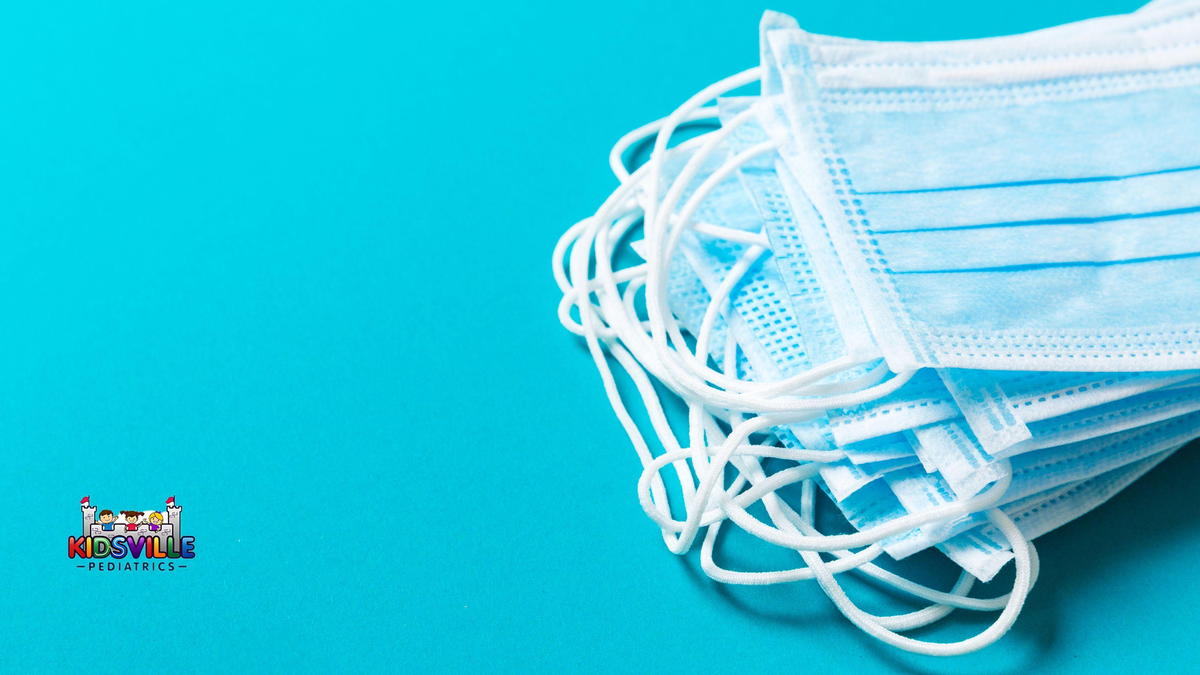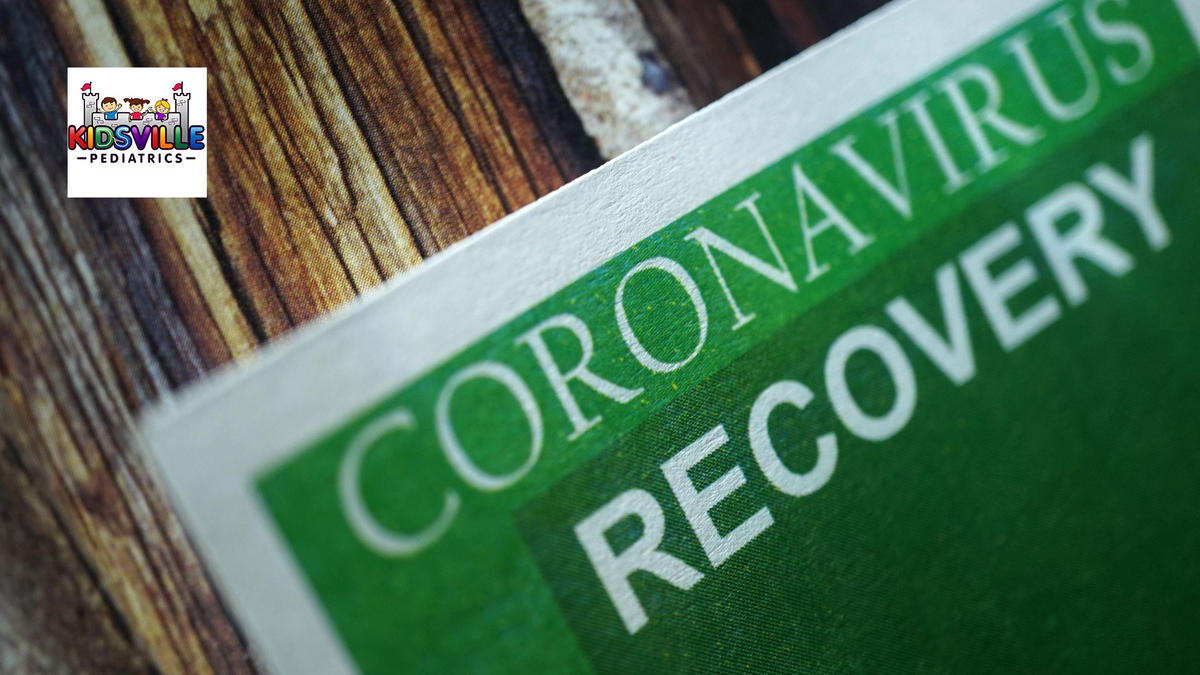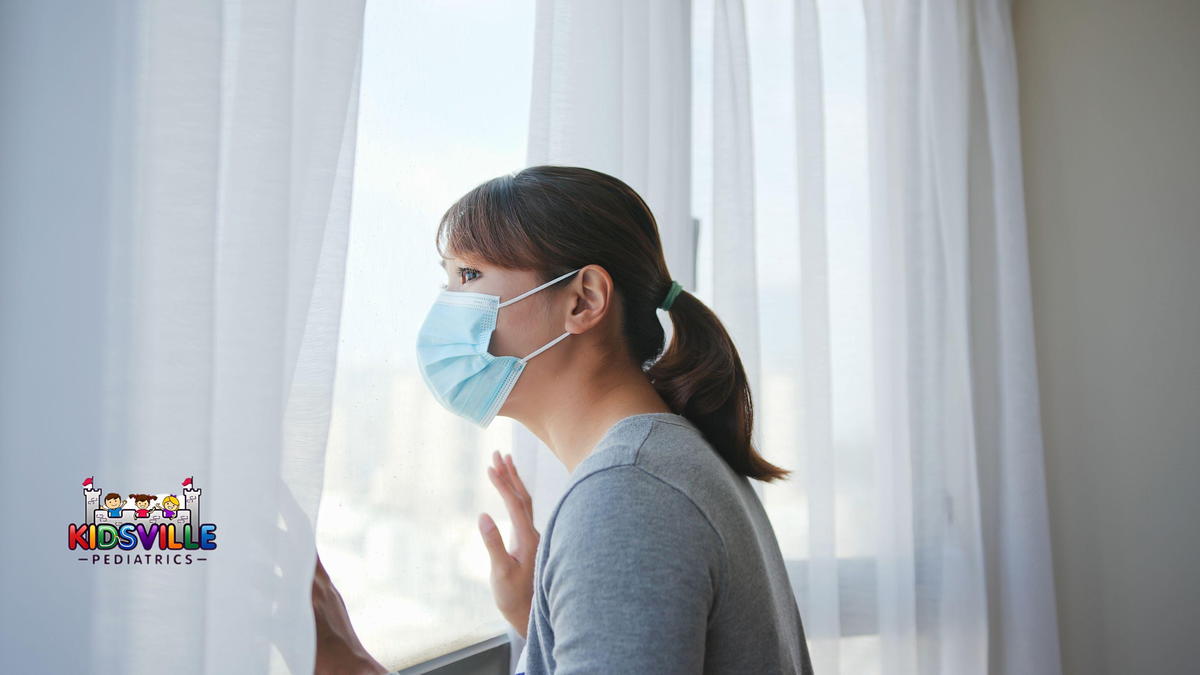
When your child tests positive for COVID-19 or has been exposed to someone with the virus, it can feel overwhelming. With new information constantly emerging, it’s essential to stay informed and take practical steps to care for your child and protect your household. At Kidsville Pediatrics, we want to help you navigate this challenging time by offering guidance based on recommendations from trusted sources like the Children’s Hospital of Philadelphia (CHOP) and the Centers for Disease Control and Prevention (CDC).
This guide provides essential information on how to care for your child if they contract COVID-19, how to protect your family from spreading the virus, and what steps to take next. If you have any concerns, please reach out to your healthcare provider or a trusted pediatrician in Southlake, TX, for further support.
Stay Calm: COVID-19 is Often Mild in Children

Whatever happens, do not panic. While it’s normal to feel anxious when your child is sick, most children who contract COVID-19 experience mild symptoms similar to those of a cold or flu. In otherwise healthy children, COVID-19 generally does not cause severe illness, and the majority of cases can be managed at home with proper care.
When your child is sick with COVID-19, make sure they are comfortable. Ensure they are well-hydrated by offering plenty of fluids, and use over-the-counter pain medication if needed to reduce any discomfort, such as body aches or fever. Keep a close eye on their symptoms to ensure they don’t worsen.
When to Seek Medical Attention
In most cases, your child will recover without any complications. However, it’s essential to be vigilant and recognize when you should seek medical help. If your child isn’t eating or drinking, is struggling to breathe, or their behavior seems unusual, contact your Southlake pediatrician immediately. Children with preexisting conditions, like immunosuppression or chronic respiratory problems, are at a higher risk for severe complications from COVID-19, so they may require closer monitoring.
In rare cases, emergency signs such as persistent trouble breathing, chest pain, confusion, or a bluish tint to the lips and face may appear. If you notice any of these symptoms, seek a pediatrician in Southlake right away.
Steps to Protect Your Household

COVID-19 spreads primarily through respiratory droplets, so it’s vital to protect other members of your household if your child tests positive. This means taking precautions to prevent the virus from spreading within your home.
Isolate the Sick Child
If possible, have your child stay in a separate room away from other family members, especially those at higher risk, such as older adults or people with underlying health conditions. Encourage them to rest and recover in a space where they won’t come into close contact with others.Practice Good Hygiene
Frequent handwashing is one of the most effective ways to prevent the spread of COVID-19. Make sure your child washes their hands with soap and water for at least 20 seconds, especially after coughing, sneezing, or blowing their nose. If soap and water are not handy, you may use hand sanitizer but make sure that it has at least 60% alcohol.Use Masks Where Appropriate
If your child is old enough to wear a mask (generally recommended for children aged 2 and older), encourage them to wear one when around others. You and other family members should also wear masks to help reduce the risk of transmission. Masks are especially important in shared spaces like living rooms or kitchens, where maintaining distance might be difficult.Disinfect Common Surfaces
Regularly clean and disinfect high-touch surfaces in your home, including doorknobs, light switches, countertops, and electronic devices. This simple step helps to eliminate any lingering virus particles and further reduces the chances of spreading COVID-19.Limit Shared Items
Avoid sharing household items like towels, bedding, and utensils with your child while they are sick. After their recovery, be sure to thoroughly clean any items they’ve used during their illness.
Returning to Normal Activities: What You Need to Know

Once your child’s symptoms start to improve and they have been fever-free for at least 24 hours, it’s generally safe for them to return to normal activities, such as going back to school. However, the CDC recommends taking additional precautions for at least five days after returning to public spaces.
During this time, it’s a good idea for your child to continue wearing a mask and practicing good hand hygiene, especially around people who may be more vulnerable to severe illness, such as elderly relatives or those with chronic health conditions.
Is Additional Testing Necessary?
In most cases, additional testing isn’t required for your child to return to school or other activities. As long as their symptoms have significantly improved and they’ve followed the recommended isolation guidelines, they can resume their daily routines.
Managing Conflicting School Guidelines
Your child’s school or local health department may have different requirements for returning to class, depending on local regulations or current COVID-19 outbreaks. In this case, it’s important to follow the guidelines provided by your school district or health authority.
If you’re unsure of the best course of action, consult with your pediatrician or contact your school’s administration for clarification. Each school may have slightly different protocols based on the current status of the virus in the community.
What Should You Do if Your Child Tests Positive, but You Don’t?

If your child tests positive for COVID-19, you are considered exposed to the virus. While you may not feel sick right away, it’s important to monitor yourself for symptoms in the days following your child’s positive test. These symptoms can include fever, cough, loss of taste or smell, or body aches.
To prevent the potential spread of the virus to others, it’s recommended to take extra precautions during this time. Wear a mask when around other people, wash your hands frequently, and avoid close contact with those outside of your household until you’re certain you haven’t contracted the virus.
If you develop symptoms or test positive, follow the same isolation guidelines as your child to protect others.
The Importance of Covid Vaccine

One of the most effective ways to protect your family from COVID-19 is to stay up to date with vaccinations. Even if your child has already contracted the virus, vaccination offers added protection by strengthening the immune system’s response to future infections.
Why Get Vaccinated?
Natural immunity from a previous COVID-19 infection does offer some protection, but it may not be enough to guard against newer variants of the virus. Vaccination provides a broader level of immunity, helping to reduce the severity of symptoms if you do get sick again and decreasing the likelihood of severe complications.
Current Covid vaccines are proven to be safe and effective for most people, including children, so be sure to talk to your pediatrician about the best vaccine schedule for your family.
How Vaccines Help Your Community
By getting vaccinated, you’re not only protecting your child but also contributing to the safety of your community. When a large percentage of the population is vaccinated, the spread of COVID-19 slows down, helping to protect individuals who cannot get vaccinated for medical reasons, such as those with weakened immune systems.
Southlake Doctors: Kidsville Pediatrics
If you’re concerned about your child’s symptoms, have questions about COVID-19 vaccinations, or need personalized advice, don’t hesitate to consult your pediatrician. At Kidsville Pediatrics Southlake, we understand that caring for a sick child can be stressful, and we’re here to provide the support and guidance you need. Your Southlake doctors are available to answer your questions and offer recommendations for protecting your family during the pandemic.
Caring for a child with COVID-19 can be challenging, but with the right steps, you can help them recover safely while minimizing the risk to others. Stay informed, follow guidelines from reliable sources, and don’t hesitate to reach out to your Southlake doctors for assistance. Remember, the majority of children experience mild symptoms and recover fully with time and care.
At Kidsville Pediatrics Southlake, we’re committed to helping families stay safe and healthy. If you have any concerns about your child’s symptoms, exposure, or vaccination, contact your pediatrician Southlake, TX team, today. Together, we can navigate the challenges of COVID-19 and keep our families and communities protected.
Click to Schedule An Appointment. Or visit/call our clinics: Kidsville Pediatrics Mansfield TX: 682-341-3910; 1759 Broad Park Circle S, Suite 201 & 205, Mansfield, TX Kidsville Pediatrics Southlake: 682-345-8010; 2813 W. Southlake Blvd Suite 100 Southlake, TX Kidsville Pediatrics McKinney: 469-885-9400; 5881 Virginia Pkwy. Suite 300 Mckinney, TX |
